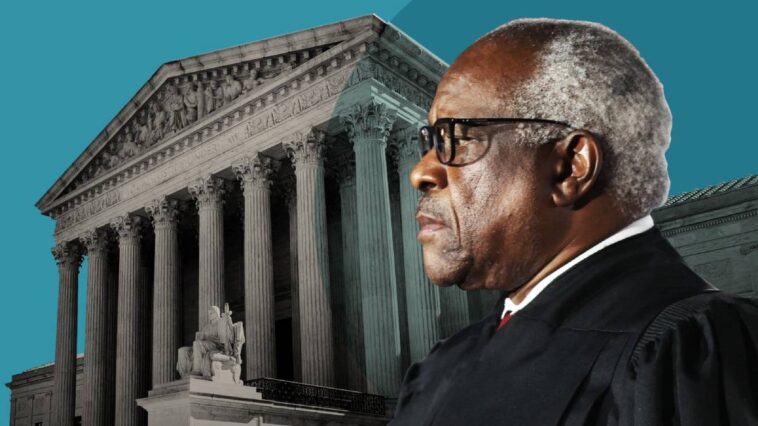Imagine growing up in a small town with big dreams, only to find yourself at the pinnacle of the U.S. legal system. This isn’t just any story; it’s the financial journey of Supreme Court Justice Clarence Thomas. From his modest upbringing to his current status among the nation’s elite, Thomas’s path to financial stability is a tale of ambition, controversy, and the complexities of public service compensation.
Clarence Thomas Net Worth: Financial Profile of a Supreme Court Justice
Table of Contents
Early Struggles and Supreme Aspirations
Clarence Thomas’s story begins in Pin Point, Georgia, where he was born into humble circumstances. His early life was marked by financial hardship, but Thomas was determined to rise above it. He pursued higher education with vigor, eventually making his way to Yale Law School. Despite his academic achievements, Thomas’s financial struggles didn’t end upon entering the professional world. His salary as a Supreme Court Justice, while substantial by average standards, paled in comparison to the potential earnings in the private sector.
The Supreme Salary Dilemma
In 2000, Thomas found himself in a precarious financial situation. Despite a salary of $173,600—equivalent to over $300,000 today—he was hundreds of thousands of dollars in debt. His financial strain was exacerbated by the costs of raising his young grandnephew and maintaining a lifestyle befitting a person of his stature. Thomas’s frustrations led him to advocate for higher salaries for Supreme Court justices, fearing that financial constraints could force him or his colleagues to resign.
Luxurious Lifelines and Ethical Questions
As Thomas grappled with his financial woes, he began receiving gifts and luxury vacations from wealthy benefactors, notably real estate tycoon Harlan Crow. These gestures included trips on Crow’s private jet and yacht, stays at exclusive resorts, and even financial assistance for personal expenses. While these gifts provided Thomas with a taste of the opulence he couldn’t afford on his salary alone, they also raised ethical concerns and questions about the influence of wealth on the judiciary.
Clarence Thomas’s Assets Unveiled: The Supreme Court Justice’s Net Worth
The Impact of Wealth on Judicial Integrity
Thomas’s acceptance of lavish gifts highlights a broader issue within the U.S. judiciary: the influence of wealth and the potential for it to undermine public trust. Critics argue that when a justice’s lifestyle is subsidized by the rich, it corrodes the impartiality expected of the nation’s highest court. This controversy underscores the delicate balance between maintaining the dignity of the judiciary and ensuring justices are compensated fairly for their service.
Conclusion: A Complex Financial Legacy
Clarence Thomas’s financial story is a complex tapestry of ambition, legal prowess, and ethical dilemmas. It reflects the broader challenges faced by public servants who navigate the waters of financial temptation while upholding their duties. As Thomas continues to serve on the Supreme Court, his financial journey serves as a reminder of the ongoing debate over how best to compensate those who hold the nation’s highest judicial offices.
Clarence Thomas’s journey from humble beginnings to supreme wealth is a testament to the complexities of public service in America. It raises important questions about compensation, ethics, and the influence of wealth on the judiciary, making his financial story a subject of ongoing interest and debate.
TL;DR: Key Points of Clarence Thomas’s Financial Story
- Humble Beginnings: Clarence Thomas rose from modest circumstances in Georgia to become a Supreme Court Justice.
- Supreme Salary Dilemma: Despite a significant salary, Thomas faced financial strain and advocated for higher compensation for justices.
- Luxurious Lifelines: Thomas received gifts and vacations from wealthy benefactors, raising ethical concerns.
- Impact on Judicial Integrity: These gifts highlight the potential influence of wealth on the judiciary and the importance of maintaining impartiality.
- Complex Financial Legacy: Thomas’s story exemplifies the challenges of balancing fair compensation for public servants with ethical considerations.

